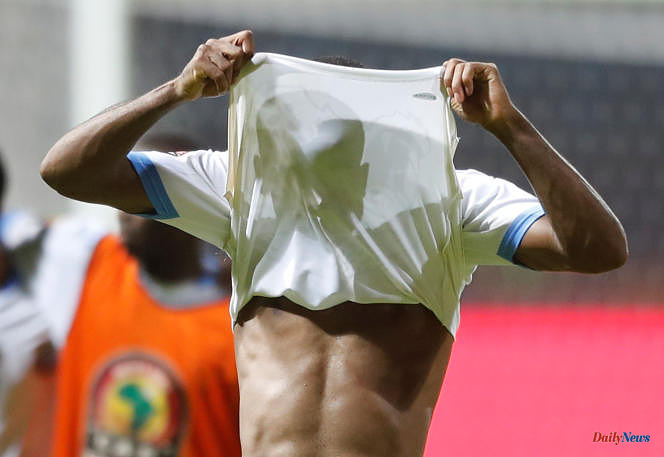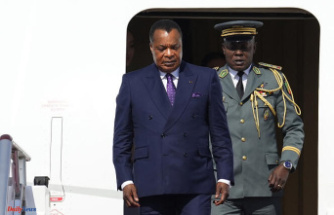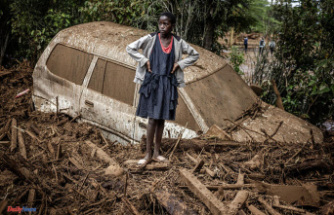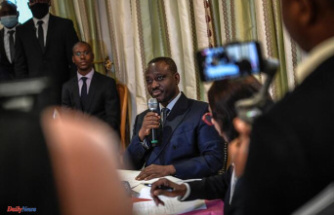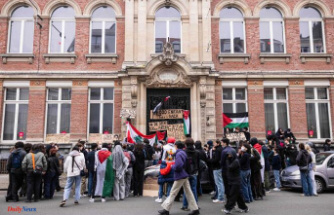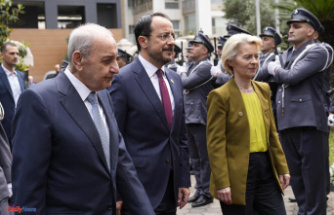The Democratic Republic of the Congo (DRC) Ligue 1 championship froze on December 24, 2022. On that day, AS Vita Club Kinshasa, one of the best football clubs in the country, came out on top (2-1) in Likasi against the US Panda and consolidated its leading position after ten days. Nobody imagined then that the truce of a few weeks allowing the players of the national team to prepare for the final phase of the African Nations Championship (CHAN) in Algeria would result in an outright cancellation of the 2022-2023 season.
Theoretically, the professional championships (L1 and L2) should have resumed after CHAN. But financial and logistical problems got the better of the competitions. "As the Congolese territory is huge and travel long and expensive, the state has reached an agreement with the National Football League [Linafoot] to cover these costs. But we are faced with a problem of aviation companies: there are few planes available to transport 20 to 30 people to Congo", explains Lambert Osango, president of AC Rangers (L1) and the Association Congo Football Leaders (ADFCO)
According to our information, it also missed about 800,000 euros, yet promised by the State, to complete the current exercise. On April 27, the Congolese Football Federation (Fecofa) was placed under the supervision of FIFA and headed by a normalization committee responsible for putting an end to the institutional crisis. The date of May 5 had been brought forward for the restart of competitions, but it was finally decided, on the proposal of Véron Mosengo-Omba, the secretary general of the Confederation of African Football (CAF), to definitively interrupt the L1 and the L2.
The most optimistic hope that the 2023-2024 season will start well in the fall. But "it is more and more difficult to be professional in a country where the players are not considered", regrets the international Maxi Nzengeli, 23 years old: "I do not know who are the real responsible, the leaders of football or the government, but the victims are the players and the coaches. I know footballers who are very anxious because they don't know what will become of them or if the next season will come to an end. »
The players go into exile
The young player, captain of AS Maniema, belongs to one of the few Congolese clubs to honor their contractual commitments. But the team's coach, Papy Kimoto, has no illusions: "This premature end to the championships runs the risk of seeing players leaving the country to find a club abroad. »
For two years, the exile of Congolese footballers has indeed accelerated, mainly to Sudan, Tanzania, Angola or Uganda. "Even if it is never easy to leave your country, when you are offered the opportunity to play in a structured championship, which takes place normally - which has not been the case in the DRC for three years -, with a salary clearly higher, you agree. However, I was playing at Vita Club, one of the best Congolese clubs, "explains international Fiston Mayele, 28, who joined the Tanzanian club Young Africans in 2021, with whom he is preparing to play in the FIFA Cup final. the CAF.
The massive departures of Congolese players contribute to weakening a little more the level of a championship which was nevertheless one of the best on the continent in the 2000s and 2010s, as evidenced by the multiple continental titles won by the clubs and the national team (seven Champions Leagues, two African Cups of Nations and two CHAN). "In the place of the players, I would ask myself the same questions and I fear that the number of exiles will increase in the coming months", intervenes Frédéric Kitengie, general secretary of TP Mazembe.
The leader implores the Congolese football authorities to "quickly propose a calendar for the 2023-2024 season, in order to set a course for clubs and players". Fecofa and Linafoot have promised to respond in the coming weeks. "It shouldn't last forever," insists Sébastien Desabre, the French coach of the national team, forced to compose his squad exclusively with players playing in Europe and in other African countries such as Morocco, Sudan and Tanzania.

